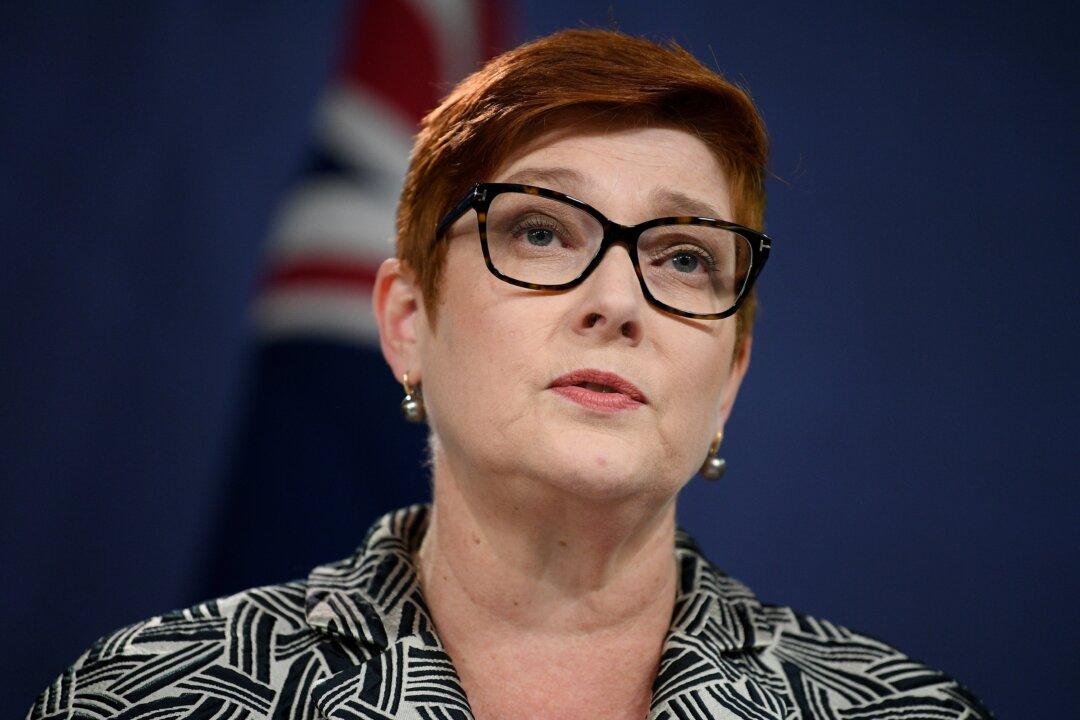Australian Foreign Minister Marise Payne has taken aim at Beijing’s efforts to “buy influence” and “pick off” individual countries just prior to meeting with democratic world leaders at the upcoming G7 Plus meeting in Europe and with leaders in the United States.
Payne spoke in glowing terms about her visit to London, Geneva, and Washington D.C., where issues such as COVID-19, human rights, climate change, and security in the Indo-Pacific region are set to be discussed.





